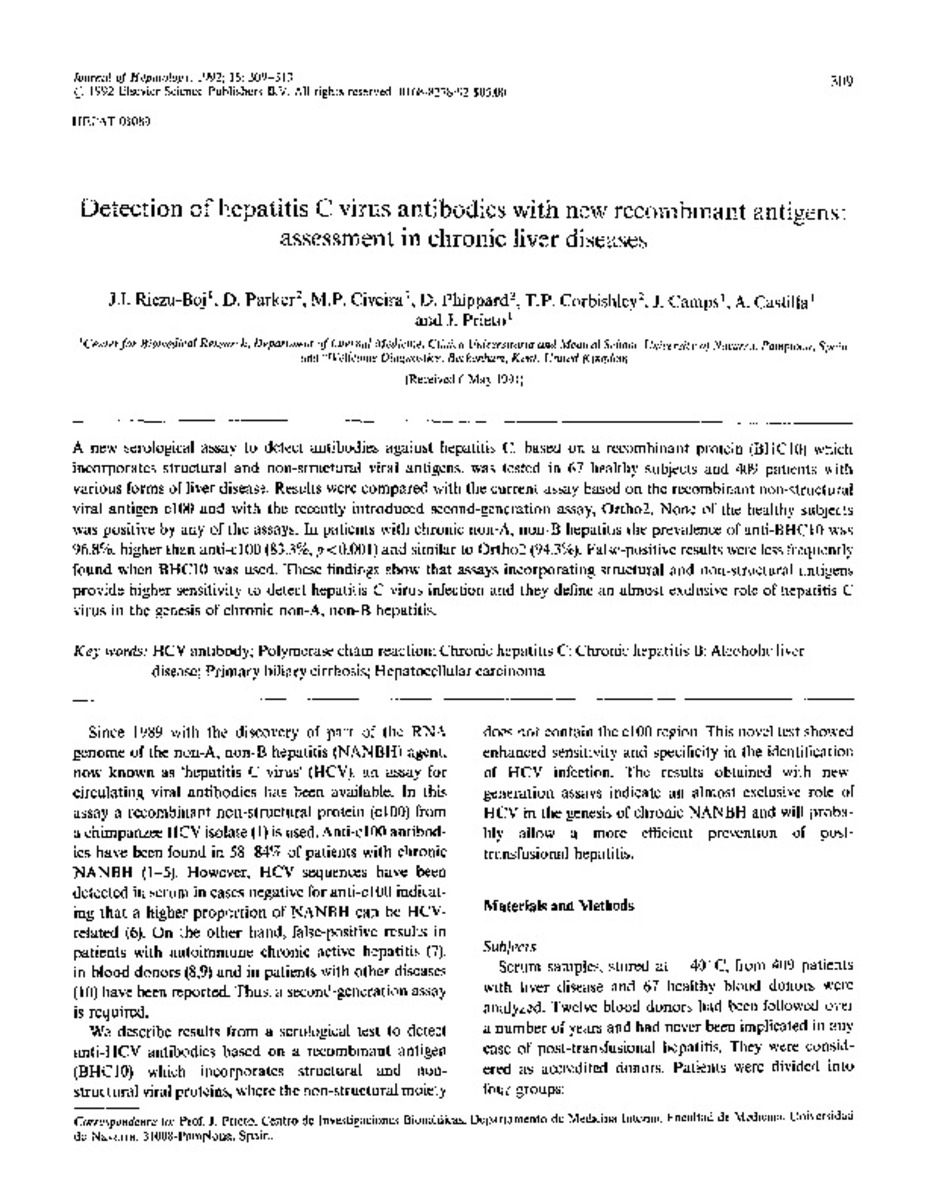Detection of hepatitis C virus antibodies with new recombinant antigens: assessment in chronic liver diseases
Palabras clave :
HCV antibody
Polymerase chain reaction
Chronic hepatitis C
Chronic hepatitis B
Alcoholic !iver disease
Primary biliary cirrhosis
Hepatocellular carcinoma
Fecha de publicación :
1992
Cita:
Riezu-Boj JI, Parker D, Civeira MP, Phippard D, Corbishley TP, Camps J, et al. Detection of hepatitis C virus antibodies with new recombinant antigens: assessment in chronic liver diseases. J Hepatol 1992 Jul;15(3):309-313.
Aparece en las colecciones:
Estadísticas e impacto
0 citas en

0 citas en

Los ítems de Dadun están protegidos por copyright, con todos los derechos reservados, a menos que se indique lo contrario.









